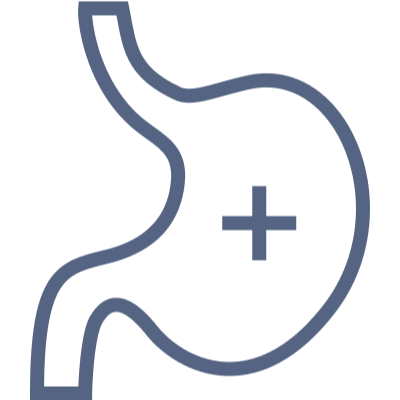Collection Method
CI05.04.01
Kit Requirements
1x Allergy Spot Card OR 1 x SST Serum
Turn Around Time
12-15 business days Turnaround times are estimates
Description
There are several types of immunoglublins that are made in the body. It is important to understand the differences between IgE, IgA and IgG immunoglobulins and when to test for each of them. Immunoglobulins are a class of proteins which function as antibodies produced by the immune system in response to foreign antibodies such as food antigens.
An IgG reaction can occur hours to days after exposure to the allergen; food or inhalant. This type of reaction is referred to as a delayed sensitivity reaction.
Elevated IgA to specific foods is widely believed to be a sign of damage to the mucous membranes in the gut. Individuals with Crohn’s disease or ulcerative colitis, or even those with suspected leaky gut may benefit from testing IgA food reactions. IgA is produced in the greatest quantity in a day. IgA antibodies are the first line of defence against suspected disease causing agents like viruses and bacteria.
The IgG & IgA general food panel is a useful test in assessing both delayed and damaged mucosal type reactions of 96 general western foods. This type of testing is useful as it eliminates the broad process of ‘trial and error of eliminating offending foods’ and provides a detailed report for identifying offending foods and a rotation diet based on the test results. All antigen tests through NutriPATH are ran in duplicates to ensure accurate and meaningful results are provided to the patient for optimal health.
Analytes
-
Grains/Legumes/Nuts
- Almond
- Barley
- Buckwheat
- Chestnut
- Chickpea
- Coconut
- Corn
- Gliadin
- Gluten
- Green Bean
- Green Pea
- Hazelnut
- Kidney Bean
- Lentil
- Lima Bean
- Oat
- Peanut
- Pecan
- Pinto bean
- Rye
- Soybean
- Spelt
- Walnut
- Wheat
- White Rice
- Whole
-
Fruit
- Apple
- Apricot
- Banana
- Blueberry
- Cranberry
- Grape
- Grapefruit
- Lemon
- Olive
- Orange
- Papaya
- Peach
- Pear
- Pineapple
- Plum
- Raspberry
- Strawberry
-
Vegetables
- Asparagus
- Avocado
- Beet
- Broccoli /Brussel Sprouts
- Cabbage
- Carrot
- Cauliflower
- Celery
- Cucumber
- Garlic
- Green Bell Pepper
- Lettuce
- Onion
- Pumpkin
- Spinach
- Sweet Potato
- Tomato
- White Potato
-
Misc/Herbs/Spices
- Baker's / Brewer's Yeast
- Button Mushroom
- Cane Sugar
- Cocoa Bean (Chocolate)
- Coffee Bean
- Flaxseed
- Ginger
- Honey
- Oregano
- Sesame Seed
- Sunflower Seed
-
Meat/Poultry
- Beef
- Chicken
- Lamb
- Pork
- Turkey
-
Candida Screen
- Candida albicans
-
Dairy
- Casein
- Cheddar Cheese
- Cow's Milk
- Goat's Milk
- Whey
-
Egg
- Chicken
- Duck
- Egg White
- Egg Whole
- Egg Yolk
-
Fish/Shellfish
- Clam
- Cod
- Crab
- Halibut
- Lobster
- Salmon
- Scallop
- Shrimp
- Sole
- Trout
- Tuna
Test Method
Common Conditions
 Gastrointestinal and Digestive Health
Gastrointestinal and Digestive Health- Abdominal bloating
- Abdominal cramping
 Mental and Emotional Health
Mental and Emotional Health- Behavioural problems (ADD/ADHD)
- Depression
 Other Health Conditions
Other Health Conditions- Diarrhoea
- Fatigue
- Fluid retention
- Headaches/Migraines
- Hives
- Irritable Bowel Syndrome
- Leaky gut
- Mood disorders
 Skin and Dermatological Health
Skin and Dermatological Health- Skin conditions
- Skin rashes
Notice To Patients
NutriPATH practices in the usual practitioner-referral system for pathology laboratories. Patients are highly recommended to seek the supervision and guidance of a qualified healthcare practitioner for the interpretation of any lab results and associated information. NutriPATH can offer assistance in locating a suitable practitioner.
How it works
Step 1
Order test
Your referring practitioner will place this order via their online portal.

Step 2
Collect Samples
A test kit will be dispatched to you and you can conveniently collect your sample in the comfort of your home.

Step 3
Return Samples
Return samples for analysis via the provided courier packaging.

Patient resources
Our highly skilled and qualified team have created a service where patients can easily gain access to a wide range of pathology testing options.
Practitioner resources
As a leader in the industry, practitioners are able to trust in our ability to provide them with the technology they need to adequately test their clients and patients.









